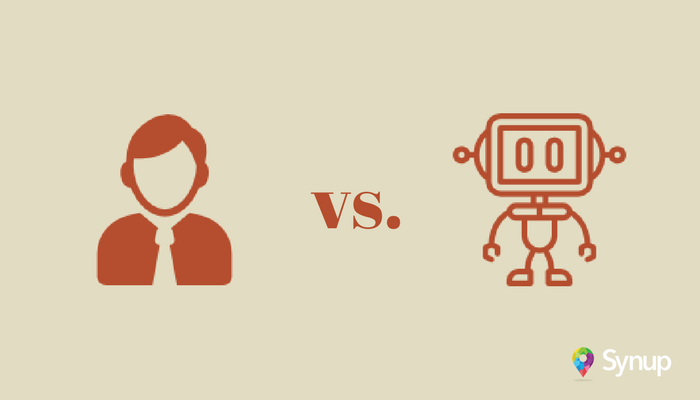Listen to most marketing experts, and it’s almost impossible to ignore: your website should be at the center of your digital efforts. But what too many of them fail to mention is that actually, it’s just a part of your online presence. In reality, your brands’ presence across digital profiles are more important than your brands’ website.
Yes, your website matters. But if you’re spending all of your energy on it, you might just ignore your biggest customer acquisition driver. Done right, profiles on platforms like Google My Business, Yelp, Facebook, Bing, Google Maps, Siri, and more can be marketing powerhouses that engage, convince, and convert your audience.
Let’s dig into the why. After reading these 6 reasons why your business profiles matter even more than your website, you’ll be ready to fix, optimize, and scale your online presence in a more holistic, sustainable way.
1) Business Profiles Meet Your Audience On Their Terms
For your website, search engine optimization is a difficult game. Ranking for non-branded terms for your industry can take months and even years. That’s because audiences intuitively don’t search for business names, but more general terms that plenty of other businesses want to rank on, as well.
Consumers discover global brands more often through unbranded queries (58%) than branded, meaning they include a business name. Almost 50% of those searches are local. In those local searches, the user journey tends to be simple:
- An online user wants to find out more about a product they need, like take-out food or new shoes.
- They go to a search engine to search keywords related to ‘take-out restaurants’ or ‘shoe stores near me.’
- They don’t tend to go to the websites that pop up in the main search window. Instead, they check out the Google profiles within the results.
That sample user journey is easily replicated across other industries. It’s why, in a recent two-year period, searches along the lines of ‘near me’ grew by 900%.
A digital profile meets your audience on their terms. When they just want to find out more about a local business, they won’t browse to the second page of Google. Instead, they’ll look to your profile for the information they need to make a buying or shopping decision.

2) Business Profiles are an SEO Powerhouse
We’ve touched on it above, but it’s worth discussing in more detail: done right, your business profiles will become search engine optimization powerhouses. On Facebook, Yelp, Google, and other sources, they’ll be the first thing people see when they look for information related to your industry.
Don’t take our word for it, either. In a tracking survey of leading SEO experts completed each year for the past seven years, Google My Business has ascended as the most important SEO ranking factor in 2020. Other profiles, like Yelp and Facebook, carry similar ranking juice.
Keyword intent drives results to digital profiles much faster than website referrals, as evidenced by two separate but related data points:
- According to Search Engine Journal, the average local business website receives just under 420 clicks per month from local search.
- The same year, Search Engine Journal also published a study showing that the average Google My Business profile receives more than 1,000 views per month.
That’s twice the monthly website traffic. And it’s not even taking into account the added value of profiles on other sites like Yelp or Facebook. As a result, it wouldn’t be an exaggeration to say that digital profiles can drive up to five times the SEO juice compared to the website. If you truly want to prioritize search, you need these profiles to maximize results.
3) Business Profiles Build Credibility Through Online Reviews
Your website is your opportunity to sell yourself. The problem is that your audience knows that, too. So they navigate to third-party websites that offer not just your opinion of yourself, but that of other customers. Consider these statistics, published by the data platform Qualtrics:
- 91% of 18 to 34 year-olds trust online reviews as much as personal recommendations.
- 93% of consumers say that online reviews, positive or negative, influence their purchasing decisions.
- 92% of B2B buyers are more likely to purchase a product or service after reading positive reviews.
- Consumers are willing to spend an average of 31% more on a business with excellent reviews.
- Four out of five consumers have changed their mind on a purchasing decision of a recommended product after they read negative reviews.
Our own research has found similar results, with consumers willing to travel further in order to engage with a better-rated business. And here’s the good news: Your digital profiles are an excellent way to both manage and spotlight your reviews.
Once you optimize your digital profiles, you can encourage satisfied customers to leave a review. But you can also take further action, like engaging with negative reviews and even flagging false reviews.
In the process, you curate an online experience that features authentic customer reviews, while still driving traffic and revenue to your business. In fact, brands and businesses who hit the trifecta of generating reviews, have good star ratings, and interact with their reviews and profiles are consistently rewarded with better SEO and profile visibility.

4) Business Profiles Prioritize Function over Fancy
There’s a reason that when you think about optimizing your website, ‘design’ is probably among your first thoughts. Much like other marketing collateral, it’s important to look good. The problem is that your audience, in many cases, actually just wants to find important information quickly.
That’s the reason UX and usability have taken center-stage in web design. But it’s still an awkward workaround for the issue at hand. Online profiles, on the other hand, are designed to prioritize function over fancy.
Once optimized, the experience is seamless. You can present your opening hours, ask your audience to request information, provide driving directions, and even post your restaurant menu for your audience to view. Other features, like the message section or publishing current promotions, subtly bring in website-adjacent functions without ever requiring a visit to your .com site.
Again, it’s about meeting your audience where they are. They get the information they need quickly, becoming more likely to take action and visit your establishment in the process.
5) Business Profiles Drive Sales Funnel Conversions
It’s not just about the initial attention your profiles can get you, either. Done right, they become powerful conversion generation machines for your sales funnel by driving both leads and revenue.
That starts with the direct contact, a crucial step in the funnel for many local businesses. A Google study found that 60% of smartphone users contacted a business directly after finding it through its My Business Profile.
At the same time, it also connects to revenue. According to Google, 76% of people who search for something nearby on their smartphone visited the store within 24 hours. Meanwhile, a Harvard study found that each added star on a Yelp review added between 5% and 9% of revenue for restaurants.
6) Business Profiles Can Optimize Website Success
All of the above points are unique to digital business profiles. But that doesn’t mean you should ignore your website, either. In fact, the two platforms and opportunities tend to work best in tandem.
On average, 56% of the actions taken on Google My Business profiles are website visits. Even as you post your hours, menu, and other functional information, they might want and need to learn more about you. That’s when your website comes into play.
Ideally, the two channels work in close partnership. Your website, after all, can still profile important marketing information such as business background, product details, and more. And of course, it can also link back to your digital channels to encourage your customers to leave reviews and more.
In other words, your business profiles can become the perfect complement to your website, improving your user experience and buyer’s journey in the process.
Ready to Start Optimizing Your Business Profiles for Online Success?
In short, business profiles should take a central role in your efforts to engage your audience, optimize your online presence for their preferences, and provide credible and functional information. It’s the only way to make sure you truly maximize your digital opportunities.
You’ve heard about the benefits. Now, it’s time to start taking action. Your profiles can and should become a crucial part of your digital strategy, but they do need appropriate attention if that is your goal.
So let’s talk. We’ll take a look at your existing profiles and untapped opportunities, helping you leverage these benefits in the process.


